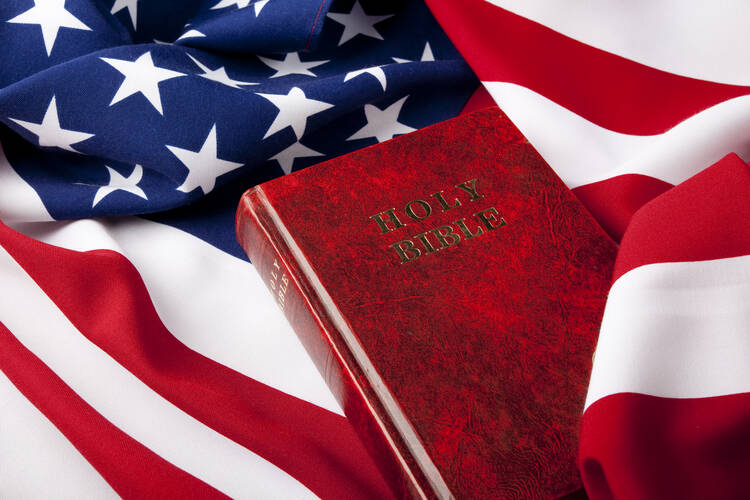Donald Trump has frequently insinuated a divine calling, positioning himself as a chosen figure imbued with prophetic significance, particularly in the context of the 2024 presidential election. This suggestion implies a sense of infallibility, elevating Trump above constitutional constraints, legal norms, and societal expectations.
Despite the glaring absurdity of such claims, Trump’s overtly harsh and dishonest demeanor hardly aligns with conventional notions of godliness or righteousness, especially as perceived through Christian standards.
His sporadic church attendance and evident disregard for evangelical supporters, whom he views instrumentally rather than reverently, underscore his transactional approach to the relationship. For Trump, they represent a source of narcissistic validation, campaign finances, unwavering allegiance, and crucially, electoral support.
The dynamic between Trump, his loyal base under the banner of “Make America Great Again” (MAGA), and the Christian right is marked by mutual exchange. Throughout his tenure and beyond, Trump has pledged, and to a large extent, fulfilled promises to empower the Christian right, granting them influence over public policy with the aim of reshaping the nation into a theocracy.

In return, the Christian right has anointed Trump as their leader in a spiritual crusade, despite his evident transgressions, viewing his perceived persecution as validation of his prophetic status. Recent surveys and research indicate a growing belief among Republicans, particularly within the MAGA movement, in Trump’s divine mandate to lead the country.
This convergence of interests poses an existential threat to democracy, as evidenced by Trump’s documented initiatives such as Project 2025 and Agenda 47, which outline plans for consolidating dictatorial authority. Recent reporting by Politico underscores the significant role that Christian nationalists and theocratic ideologues are likely to play should Trump return to power.
In a discussion with Paul Djupe, a political scientist and expert on religious engagement in democratic politics, the resonance of Trump’s apocalyptic rhetoric with the Christian right becomes apparent. Contrary to underestimations of Trump’s tactics, Djupe asserts that his use of such language is deliberate and effective, tapping into evangelical beliefs about the end times and supernatural forces at play in American society.
Moreover, Djupe warns against dismissing the militant undertones within militant Christianity, emphasizing the tangible threat it poses to democracy and civil society. He cautions that under a Trump administration supported by the Christian right, marginalized groups such as the LGBTQ+ community, racial minorities, non-Christians, and women would face systematic attacks on their rights and freedoms.
Trump’s recent assertions of divine appointment and his inclusion of right-wing Christian preachers at rallies, who characterize his opponents as demonic adversaries, illustrate the escalation of this rhetoric. The overlap with beliefs propagated by the QAnon conspiracy further underscores the gravity of the situation.
The proliferation of apocalyptic narratives and conspiracy theories among the Christian right underscores a readiness for radical action. This worldview not only justifies extreme behavior but also fosters a climate conducive to embracing authoritarianism.
As the election approaches, concerns mount over the normalization of Trump’s authoritarian promises and the polarization of political discourse.
The expansion of charismatic Christianity and its inclination towards framing politics in terms of cosmic warfare raises the specter of violence permeating even the most mundane aspects of political engagement. In such a volatile landscape, the potential for the 2024 elections to become a tinderbox of societal tension is deeply troubling.


